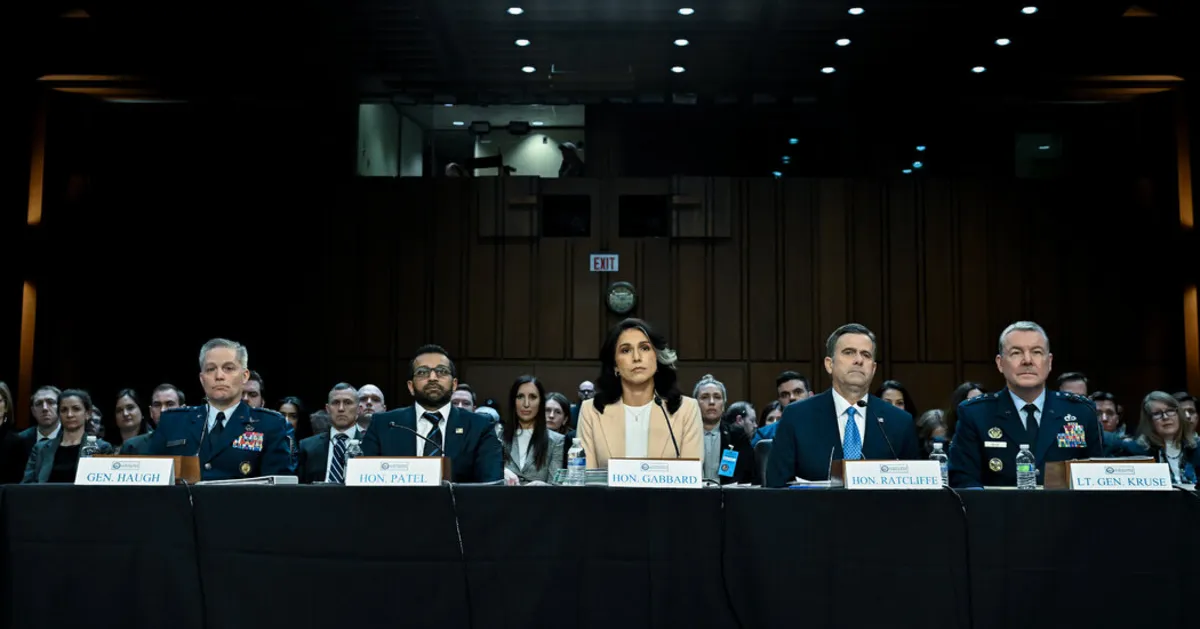
During a critical Senate hearing on Tuesday, the nation’s top two spy chiefs faced tough questions regarding their involvement in a Signal chat that discussed U.S. military strikes in Yemen. C.I.A. Director John Ratcliffe and Director of National Intelligence Tulsi Gabbard both rejected claims that the military information shared in this chat constituted classified intelligence.
As the hearing progressed, both officials acknowledged the sensitivity of information related to strike targets, yet they skillfully dodged detailed inquiries about the specific content of the Signal chat. Their responses were carefully crafted, aiming to maintain a level of ambiguity regarding who was responsible for potential leaks, a topic of considerable concern among the senators.
In a notable moment, Gabbard initially hesitated to confirm her involvement in the chat, raising eyebrows among the Democratic senators present. Meanwhile, Ratcliffe indicated that it was ultimately the responsibility of Defense Secretary Pete Hegseth to decide what information could be shared within an unclassified framework. This statement underscored the complexities involved in managing sensitive military communications.
During the questioning, one Democratic senator pressed Ratcliffe to concede that the entire situation represented a significant and damaging error. However, Ratcliffe flatly rejected this assertion, reflecting a broader reluctance among the officials to acknowledge any misjudgment in the handling of the sensitive information.
The exchange during the Senate hearing raises crucial questions about the transparency and accountability of U.S. military operations. As discussions about military strikes continue, the careful navigation of classified and unclassified information will remain a pivotal issue for both intelligence and military leaders.
In conclusion, the Senate hearing served as a critical platform for exploring the complexities surrounding the sharing of military information, especially in the context of U.S. actions abroad. The ongoing dialogue about the implications of such communications will likely influence future policies on military transparency and intelligence sharing.